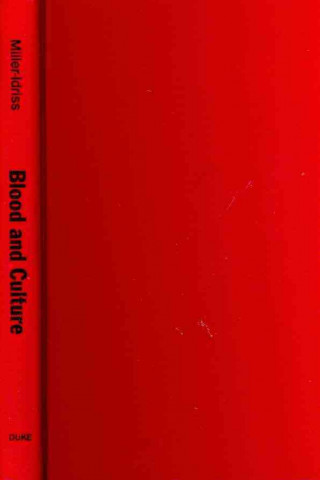
Kód: 04938992
Blood and Culture
Autor Cynthia Miller-Idriss
Over the past decade, immigration and globalization have significantly altered Europe's cultural and ethnic landscape, foregrounding questions of national belonging. In "Blood and Culture", Cynthia Miller-Idriss provides a rich et ... celý popis
- Jazyk:
 Angličtina
Angličtina - Väzba: Pevná
- Počet strán: 256
Nakladateľ: Duke University Press, 2009
- Viac informácií o knihe

129.89 €
Bežne: 129.91 €
Ušetríte 0.02 €
Dostupnosť:
50 % šanca Máme informáciu, že by titul mohol byť dostupný. Na základe vašej objednávky sa ho pokúsime do 6 týždňov zabezpečiť.
Máme informáciu, že by titul mohol byť dostupný. Na základe vašej objednávky sa ho pokúsime do 6 týždňov zabezpečiť.Prehľadáme celý svet
Mohlo by sa vám tiež páčiť
-

Dental Ceramics
62.28 € -

River Thame
18.71 € -4 % -

Air Ministry Pilot's Notes
8.38 € -18 % -

Narrative of the Life of Frederick Douglass - An American Slave
15.74 € -

Private Equity as an Asset Class 2e
70.97 € -

Advances in Logic Programming and Automated Reasoning
34.15 € -

Leading With Inquiry and Action
46.43 €
Darčekový poukaz: Radosť zaručená
- Darujte poukaz v ľubovoľnej hodnote, a my sa postaráme o zvyšok.
- Poukaz sa vzťahuje na všetky produkty v našej ponuke.
- Elektronický poukaz si vytlačíte z e-mailu a môžete ho ihneď darovať.
- Platnosť poukazu je 12 mesiacov od dátumu vystavenia.
Informovať o naskladnení knihy
Zadajte do formulára e-mailovú adresu a akonáhle knihu naskladníme, zašleme vám o tom správu. Postrážime všetko za vás.
Viac informácií o knihe Blood and Culture
Nákupom získate 321 bodov
 Anotácia knihy
Anotácia knihy
Over the past decade, immigration and globalization have significantly altered Europe's cultural and ethnic landscape, foregrounding questions of national belonging. In "Blood and Culture", Cynthia Miller-Idriss provides a rich ethnographic analysis of how patterns of national identity are constructed and transformed across generations. Drawing on research she conducted at German vocational schools between 1999 and 2004, Miller-Idriss examines how the working-class students and their middle-class, college-educated teachers wrestle with their different views about citizenship and national pride. The cultural and demographic trends in Germany are broadly indicative of those underway throughout Europe, yet the country's role in the Second World War and the Holocaust makes national identity, and particularly national pride, a difficult issue for Germans. Because the vocational-school teachers are mostly members of a generation that came of age in the 1960s and 1970s and hold their parents' generation responsible for National Socialism, many see national pride as symptomatic of fascist thinking. Their students, on the other hand, want to take pride in being German. Miller-Idriss describes a new understanding of national belonging emerging among German young people: one in which cultural assimilation takes precedence over blood or ethnic heritage. Moreover, she argues that teachers' well-intentioned, state-sanctioned efforts to counter nationalist pride often create a backlash, making radical right-wing groups more appealing to their students. Miller-Idriss argues that the state's efforts to shape national identity are always tempered and potentially transformed as each generation reacts to the official conception of what the nation 'ought' to be.
 Parametre knihy
Parametre knihy
Zaradenie knihy Knihy po anglicky Society & social sciences Sociology & anthropology Anthropology
129.89 €
- Celý názov: Blood and Culture
- Podnázov: Youth, Right-Wing Extremism, and National Belonging in Contemporary Germany
- Autor: Cynthia Miller-Idriss
- Jazyk:
 Angličtina
Angličtina - Väzba: Pevná
- Počet strán: 256
- EAN: 9780822345275
- ISBN: 0822345277
- ID: 04938992
- Nakladateľ: Duke University Press
- Hmotnosť: 499 g
- Rozmery: 229 × 155 × 20 mm
- Dátum vydania: 25. August 2009
Obľúbené z iného súdka
-

Revolt Against the Modern World
24.44 € -21 % -
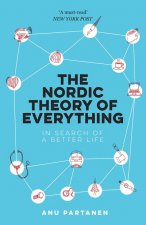
Nordic Theory of Everything
11.14 € -25 % -

How Forests Think
38.76 € -

Exercised
12.98 € -25 % -

Combatting Cult Mind Control
20.34 € -

Utopia Of Rules
17.17 € -19 % -

Protestant Ethic and Other Writings
16.15 € -31 % -
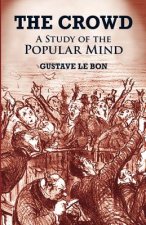
Crowd
10.63 € -20 % -

Watching the English
10.53 € -29 % -
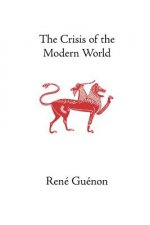
Crisis of the Modern World
16.97 € -1 % -

Kill All Normies - Online culture wars from 4chan and Tumblr to Trump and the alt-right
11.75 € -20 % -

Evolution of the Human Head
60.13 € -1 % -

Cambridge Encyclopedia of Human Evolution
101.15 € -
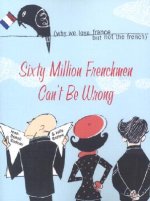
Sixty Million Frenchmen Can't Be Wrong
17.99 € -22 % -

Secret of Our Success
18.71 € -12 % -

Patterning Instinct
19.63 € -28 % -

Peoplewatching
17.48 € -28 % -
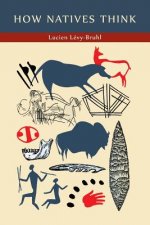
How Natives Think
22.19 € -

Bones of Contention
46.94 € -

Exploration and Discovery - Treasures of the Yale Peabody Museum of Natural History
25.25 € -9 % -

War, Peace, and Human Nature
77.83 € -

Homo Necans
46.84 € -

Chaos and Governance in the Modern World System
32.31 € -10 % -

School and Society
8.38 € -19 % -

Trickster Makes This World
11.45 € -28 % -

Consider The Lobster
10.63 € -21 % -

Limits to Medicine
14.62 € -24 % -

Totem and Taboo
6.64 € -29 % -

Face and Mask
59.11 € -
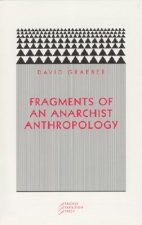
Fragments of an Anarchist Anthropology
13.18 € -8 % -

Catching Fire
13.49 € -28 % -

Designs for the Pluriverse
35.58 € -

Society Against the State
24.23 € -3 % -
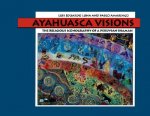
Ayahuasca Visions
32.52 € -20 % -
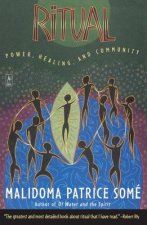
Ritual
11.34 € -31 % -

Five Roles of a Master Herder
16.76 € -17 % -

Human Story
13.49 € -28 % -

On Saudi Arabia
16.56 € -22 % -
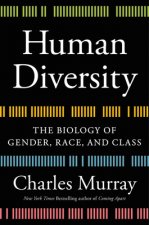
Human Diversity
38.04 € -

Small Places, Large Issues
25.77 € -10 % -

Why Is Sex Fun?
10.42 € -28 % -

Great Paleolithic War
60.75 € -9 % -

Botany of Desire
15.43 € -28 % -

Stone Age Economics
20.86 € -14 % -

Possibilities
19.32 € -20 % -

Oxford Handbook of Language Evolution
53.38 € -

On Kings
30.57 € -4 % -

Nature, Ritual, and Society in Japan's Ryukyu Islands
72.20 € -

Introducing Anthropology
10.73 € -18 %
Osobný odber Bratislava a 2642 dalších
Copyright ©2008-24 najlacnejsie-knihy.sk Všetky práva vyhradenéSúkromieCookies


 21 miliónov titulov
21 miliónov titulov Vrátenie do mesiaca
Vrátenie do mesiaca 02/210 210 99 (8-15.30h)
02/210 210 99 (8-15.30h)